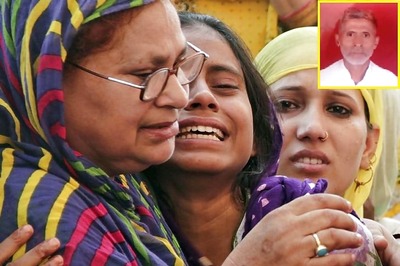Matter of a Trillion: The Uphill Task for India to Help Limit Global Temperature Rise to 1.5 Degrees

views
The Glasgow climate summit is spectacularly silent on the matter of a trillion dollars that India raised at the conference to meet the cost of the changes it needs to do its bit to restrict global temperature rise to 1.5 degrees this century.
The figure was raised by Prime Minister Narendra Modi in his address to the summit. The short speech did not go into the nitty-gritty of this stated need. But presumably, the Prime Minister was speaking of India’s needs, not of those of all developing countries. The PM also did not spell out the time frame for the trillion dollars to be delivered.
Officials have since clarified that the PM was indeed speaking of that figure in relation to India and that India is looking for a trillion dollars in finance by 2030. India is not looking for all or even most of this by way of grants, but by way of financing from countries and institutions at very low rates of interest.
But 2030 is only an interim target date to get to near enough milestones. Indian emissions, officials have clarified, will continue to rise into the 2040s, and begin to decline only after peaking then. So for India to get to its declared target of net zero emissions by 2070, it will need several trillions of dollars in financing.
Indian Environment Minister Bhupender Yadav made it clear to CNN News18 that India can be held to its 2070 target conditional on getting the financing it needs. No trillion, no net zero.
Crumbs from Peanuts
COP15, the 15th Conference of the Parties to the UN climate change protocol held in Copenhagen in 2009 agreed 100 billion dollars a year to be made available to developing countries by 2020. That commitment has not been met, and it is suggested currently that it can be met only by 2023. The Paris summit in 2015 agreed to meet this commitment up to 2025. It’s not certain that it could even begin by that date.
In ten years developed countries have not found a tenth for all developing countries that India is now seeking for itself. For India to get what it says it needs, and for the developed nations and financial institutions to meet their declared commitment India will have to get all of the money raised with not a cent for any other country.
The Glasgow summit has promised no such thing or even a respectable fraction of it. Much of the fraction of the 100 billion dollars made available has come through channels of financing that do not arise from this dedicated additional fund. It’s come by way of arguable redefinition of more established financing.
The summit that is due in Cairo next year, and more to follow annually, is not likely to produce any fraction either. The trillion figure is really a talking point in reserve: if India does not get to its interim 2030 targets, never mind 2070, it could blame the West. That would help the climate in conference halls more than it would the climate.
The needs of other developing countries for climate finance are just as real, and as dire, for India. Between them, they will need trillions of dollars a year to fund the changes needed. The 100 billion dollars a year pledged, and not delivered, is money at the level of crumbs from peanuts. Glasgow has not delivered even that.
Tears
COP26 president Alok Sharma was seen shedding tears of relief over the final outcome of the conference. He did see in it some achievement if not all that was needed. But around the developing world, the glass is nowhere near half-full, it will struggle to find a drop in the glass by way of the financing required. That is where the tears really belong.
Sharma says China and India will have to explain themselves to the more vulnerable countries around the world why they agreed, and got the conference to agree, on phasing down coal rather than phasing it out. It will inevitably be the case of China and India, and of much of the developing world, that the more developed countries will need to explain themselves, on why they promised only a drop, and then have failed to deliver that too.
Read all the Latest India News here



















Comments
0 comment